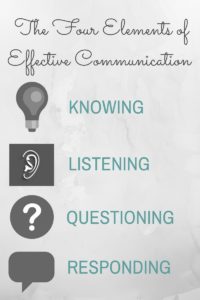Is apologetics a “sad replacement” for Bible study?
Recently, on my ministry Facebook page, a fellow believer in Christ commented that apologetics was unnecessary and a deterrent to true Bible study. Though I made a few comments to him, and he retorted, I wanted to treat this objection with just a little more thought here.
 First, as you would notice upon visiting my page, I am not shy about telling other believers when their method of communication leaves much to be relationally desired. Is it necessary to handle this aspect of the question posed? Yes. I have found far too many believers “policing” the Internet for people with whom they disagree[1]; who then engage in strident and unChrist-like retorts of fellow Christians all within view of seekers, people of different faith, and people of no belief in God. If Christians want to maintain a respectable voice in the public square, they must remember Christ’s teaching that “as you wish that others would do to you, do so to them” (Luke 6:31), or Paul’s teaching of “Do nothing from selfish ambition or conceit, but in humility count others more significant than yourselves. Let each of you look not only to his own interests, but also to the interests of others” (Phillipans 2:3-4). Though we all mess up at times, these admonitions should constantly weigh on our hearts.
First, as you would notice upon visiting my page, I am not shy about telling other believers when their method of communication leaves much to be relationally desired. Is it necessary to handle this aspect of the question posed? Yes. I have found far too many believers “policing” the Internet for people with whom they disagree[1]; who then engage in strident and unChrist-like retorts of fellow Christians all within view of seekers, people of different faith, and people of no belief in God. If Christians want to maintain a respectable voice in the public square, they must remember Christ’s teaching that “as you wish that others would do to you, do so to them” (Luke 6:31), or Paul’s teaching of “Do nothing from selfish ambition or conceit, but in humility count others more significant than yourselves. Let each of you look not only to his own interests, but also to the interests of others” (Phillipans 2:3-4). Though we all mess up at times, these admonitions should constantly weigh on our hearts.
Christians, who proclaim the great love and forgiveness of Christ, are supposed to be a testimony to that truth. If we cannot engage in disagreements, even in an online forum, without using negatively charged wording to tear one another down, why would a non-Christian be interested in our beliefs? When I was atheist, this kind of strident behavior turned me off, no matter what you said you believed (it still does).
Second, as my response indicated, to suggest that a person either does one or the other is a false dichotomy. A person may study the Bible in various ways: for meditation, for memory, for exegesis, for context, for prayer, for relationship, for instruction in righteousness, for philosophy, for archaeology, for anthropology, for theology, or even for apology. These areas may overlap in any given study time or may not overlap. One reason for studying does not inherently exclude another. I may study the text for exegesis, which leads to instruction in righteousness, thereby influencing my theology and philosophy, and further, my apologetic. However, I do agree with the gentleman that studying the Scripture is a lifelong process of moving from milk to strong meat. And I’m sure I haven’t covered nearly all the reasons for studying.
Third, I believe this is a narrow view of apologetics, something close to “arguing someone into the Kingdom of God,” or “arguing for the sake of arguing.” However, no one can be argued into the Kingdom of God; neither can anyone be “studied” into the Kingdom of God. We can sit around and pat ourselves on the back for how awesome our exegetical study of the Book of John was, but that doesn’t equal lives that have trusted in Christ for salvation. Salvation is the work of the Spirit and is between the individual and God. Study, including apologetics, can aid an individual in understanding the revelation and person of God, which can help open one up to the truth. Study, however, cannot make a believer; only surrender and trust can do that.
Further, arguing for argument’s sake, or being argumentative, is a character flaw, usually coupled with a belligerent attitude and a lack of graciousness. Believers are to have nothing to do with a lifestyle of argumentativeness.
Fourth, we have examples of apologetics given in the Scriptures, as well as formal apologetic writings from the early church fathers. Some examples of those who either argued and/or reasoned with people or gave a formal defense of belief in the resurrection of Jesus are:
– Paul: Acts 17 (vv. 2-3, 16-34), Acts 18:4, Acts 19:8, Acts 26
– Apollos: Acts 18:28
– Peter: 1 Peter 3:13-17 (commanded that the persecuted believers be ready to give a defense of the reason of their hope; the hope being the resurrection of Christ)
– Early church father, Justin Martyr, “The First Apology of Justin.”
Finally, it looked as though his real concern with me stemmed from my current fundraising campaign. He never formalized his view on why apologetics ministries cannot raise funds for their work, but he seemed quite opposed to the endeavor. So on that note: I do two online fundraising events per year. One is right now and the other is at the end of the year. We raise enough money ($10K) to support our administrative assistant and to continue taking events that cannot afford the full burden of expense to host us. My desire is to continue to give of my time and energy toward teaching on effective conversation through knowing, listening, questioning, and responding. When you give, no matter how much, you are a part of reaching that goal! So thank you, Facebook commenter, for mentioning my fundraiser!
Apologetics isn’t a sad replacement for Bible study. The statement belies an error of thought. Apologetics is part of a lifelong commitment to understanding the revelation of God in His creation: the Word, the Person, and the universe. Apologetics is a part of Bible study.
[1] In this case, the gentleman stated that I appeared in an ad on his Facebook or possibly in his newsfeed. It is therefore possible that he was not “policing” for apologists with which to argue. However, Facebook ads run on algorithms, which adjust to the things of which you show a patterned interest. So, I’m not entirely sure how I just “popped up.” Perhaps a promoted post made its way to his eyes or perhaps he’s been looking at apologetics sites, as he implied in his refutations: “I see many things for apologetics on FB…”
 In our last Knowing session, we discussed the importance of turning our focus inward toward developing our own critical thought, including the relation of critical thought to maturity in trust in God via the spiritual disciplines. This session, we will turn the focus outward toward ministering to others.
In our last Knowing session, we discussed the importance of turning our focus inward toward developing our own critical thought, including the relation of critical thought to maturity in trust in God via the spiritual disciplines. This session, we will turn the focus outward toward ministering to others.




